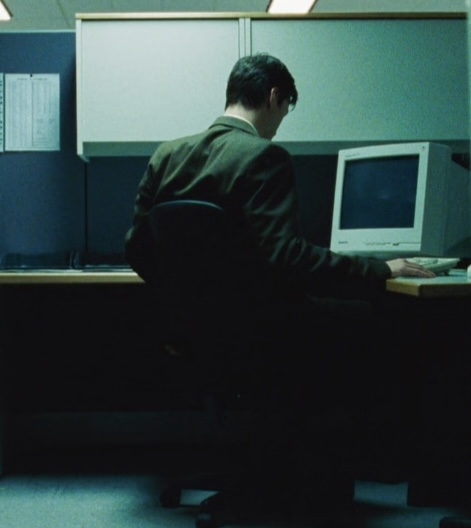As a software engineer I have adapted to the world turning upside down every couple of years and having to learn new concepts and technologies. However, I have been noticing other fields struggling to adapt as things change in a faster scale.
For example, some researchers have pointed out that the number of papers about ADHD increases exponentially every year. However, most mental health professionals, at least in my area, seem to be severily outdated, often using information that has been debunked within the last 10-20 years.
So, I was wondering if other fields are affected and how they are adapting?
Edit: Bonus question, assuming a 40hr week (a luxury for most), how much time out those 40hrs would you need to spend on education?
Well, I used to have an area of expertise… Then we adopted a kid.
Kids are hard. Kids who had years of neglect and trauma… can be a lot harder. I love him very much, but he takes up so much of my time and energy, I just don’t have any time for my own stuff any more.
Also, my field (IT) has gotten weird as computers have gotten weird. Nobody uses computers any more, they use “devices”. And these devices all suck. They’re hard (or impossible) to actually back up, you can’t deploy software to them in an organized way, they’re a security nightmare, and the interface just isn’t as easy to use as a freaking mouse and keyboard.
And if you want to talk about actual computers, those suck more every year too. Oh the hardware is improving by the day, but the software hasn’t been cooperative in years. Always online operating systems, fake settings menus to keep the user away from the real settings menus… Actually, nevermind, I don’t even want to talk about OSs, they make me too angry.
And then there’s all the software packages that would rather be services than what they actually are, a product. Poor Adobe, just not filthy rich enough yet…
Anyway, it gets harder to do IT as computers get shittier, and I am falling behind, because I hate it.
As kids get older they consistently show that parents, even enthusiastic adoptive parents, are falling behind. Enjoy your kid while they are young and they will enjoy you when they are older. Let the OSs and computers fall behind, trying to keep up with the kid is far more important.
If possible, do like I do: steer away from the shitty parts of IT. Sure, I’m falling behind, but only in regards to tech I do not want to deal with.
The result: Niche skill set revolving around stuff I like doing, and I’m damn good at it. Pays pretty well too.
Have you heard about our lord and savior Linus Torvalds?
Jokes aside, it’s horrible. The enshittification is real
Yeah, I’m doing DevOps but only DevOps. Only builds. Only Jenkins. At least I do best practices for Java, JavaScript and Python and done interesting AppSec stuff but they all do the same thing.
When I first started here, I was getting into some interesting stuff with AWS, but then they hired another me and we over-specialized
Massive respect to you for adopting and raising a traumatised kid. Falling behind with anything is a tiny price to pay for what he’ll be getting from you 👍
Yeah the trend for byod seems inevitable path for client side IMHO. Barring some zeitgeist change
I was asked how to support a large suit of client apps once and honestly to me it was use web apps, and VDI the rest. Strip the clients of as much configs as possible just advanced monitors and run everything in linux containers in k8s.
Let’s user drown in whatever OS they want to and keep our jobs sane and separate.
At least for enterprise and honestly at home do the same thing, but fully byod except those that need a managed desktop (then also Linux it).
Capitalism and the corporate environment have really sapped my enthusiasm for software development.
Corporate development makes me feel like SpongeBob in that one beach episode.

I often feel like I’m doing the devil’s bidding, only to be paid so I don’t starve, and then they’ll throw me to the wayside when I’m no longer “useful”. Makes me not want to learn, why should I? It doesn’t give me job security, or better hire ability.
I felt like that until I started working for a couple of non-profits and then later government. My job actually makes people have a better time in life. Its kinda nice nowadays.
Yeah I’ve definitely wanted to get into those sectors as well, but I don’t really know how to get my foot in the door or where to look, plus at least for my local government the pay is abysmal, any tips you have I would appreciate!
I agree with the sentiment around getting into government work. I somewhat stumbled into my current job but love a lot of things about it. Our company contracts with the US federal government and I work specifically with the VA.
Don’t know what specific skills you have experience in but I know we’re pretty much always hiring: https://oddball.io/jobs/
For government work, I stumbled into it. A friend got me the foot in the door. I really wish I could give you better advice on that but thats the truth. Its really flipping hard to get a job in my local gov area. Gov pay can be bad but it heavily depends on what/where you are. I make around -15% less than my last place, but I get a pension after a couple of years, so it evens out. Plus I dont feel like im selling my soul for a couple of bucks.
For non-profits, I simply searched for them on linkedin/indeed and found a couple in my area looking for software devs. The interview process is about the same as any other place, but they did take a look at my GitHub profile more than some others. At least when I got started.
So just like anything:
- Make sure you know your stuff.
- A portfolio of work is always going to be seen as a positive.
- Keep your resume up to date.
- Go to your local meetup groups on subjects you like (networking is important)
Hope that helps!
That’s right where I’m at. I just saw the whole third shift at my factory get laid off while corporate sends us emails about record profits. Some of those technicians had been working here for 14 years and I’m sure they’re wondering why the put in all that time to learn how to work in a highly skilled laboratory setting to just get let go. Not because the company needed to let them go to avoid bankruptcy.
No, it was to make more profit.

Shit, if I could end up as a fully realized Neo I’d be pretty OK with that.
We have GOT to find a new word for us besides “Lemmings”…
Lemmons
I like it.
When life hands you Lemmons, FEDERATE!
When life gives you lemmings
I mean that myth of them following each other off cliffs was made up by Disney. But i get it lol
Wait…what did disney ddo/say?
I only know about it because I grew up with Sega Genesis.
They deliberately drove entire herds of lemmings off clips (which killed the lemmings) and recorded video of it. That’s because they wanted a “fact” about lemmings for a documentary and didn’t care whether it was true
Is there NOTHING this evil company won’t do??? Like…seriously. when’s the last time you heard of anything GOOD Disney did?
I liked when they fought Ron DeSantis in Florida. That was funny.
I forgot about that. That was…a start.
Nah, I think it fits.
But they are sooo adorable 😍
Let’s just call ourselves Lemons.
Lemmerites?
That would require feeling like I was ever ahead.
Lmao for real
Every time I’ve gotten a real pay increase it’s because I’ve hopped to a new company.
I hate to admit that my first couple times as a manager I left as soon as I felt like I actually knew what I was doing and not just faking it
Don’t work in a company where they only use cutting-edge shit, it’s usually a sign of a scam to pump up a company to impress dumb money investors and get a golden exit for the owners.
Also it indicates nobody knows what’s important in their tools. “New” is a stand-in for quality when a person cannot distinguish quality.
“Innovation” is the brainrot of tech. If something is innovative but ultimately worse than the existing solution, then it is worthless. The general public reads innovation as a new solution that is better than existing ones or that makes an old proposal work. But tech chases innovation for innovation’s sakes. And so we end up with block chain scams and NFTs.
I mean, it’s all relative. For example, in 2024 there’s still places where basic software practices like git and ci/cd are “cutting edge”. I’m not saying those are usually the best places to work, but there are places out there still working on stuff like cloud migrations where the work culture is chill you can be pretty well valued for having some basic knowledge about best practices.
No, that would require a pre-requisite of having an area of expertise:)
I have news. This “rapid technological change” thing? It’s window dressing. At the end of the day it’s how humans relate to and interact with technology that matters, and humans haven’t changed. The core principles, that you develop a deeper understanding of with experience, really haven’t changed appreciably.
Not really, but that’s largely because what I consider to be my area of expertise is extremely niche. I am a Lead Product Manager for an internal software. I started out as an IT business analyst for the software literally as soon as it started development out of the proof-of-concept phase. Two years in, I got promoted to Product Manager. Five more years and I’ve had 2 more promotions, growing to the Lead role I have now.
There is only one person at my company whose knowledge of the application rivals my own, and he started out in QA at the same time, then backfilled my BA role when I moved to Product. I know that application inside and out; its upstream dependencies, its users, its place in our business and our technical architecture, etc. And that’s because I’ve had a hand in building it since the beginning.
People I’ve never even met think of my name as synonymous with the software. I am literally the expert on it. My tool touches almost every part of our business and ultimately makes the day-to-day jobs of over 60k people easier. I constantly learn from working on it, and in seven years it has never been boring.
However, I am no longer the only PM for it. I manage a team of 3, and I empower them to run as autonomously as possible. Every year I am less of an expert because it has outgrown what one person can maintain in their head. I use my knowledge to build up my team, and they are becoming powerhouses in their own right. I am proud when I don’t know something in my app, because it means one of my staff owned that feature so wholly that I didn’t need to be closely involved.
Now, what of this knowledge is applicable to a broader industry? I honestly don’t know, and that sometimes freaks me out a bit. I think of Product Management as my vocation, and yet I’ve only ever done it on one team, one product. I take a course every couple years, but otherwise am not super up on generic Product Management skills/trends. However, multiple people who have broader backgrounds working with Product Managers than I do have called me the best PM they’ve ever worked with, so presumably I’ve gotten something right.
Not really an answer to the question as you intended it, I’m sure. But I do think about my role and my expertise in it a lot. And I really love it.
You sound like a truly awesome PM. I hope I get to work with someone like you one day.
Aww, thank you! Having a great team all around (PMs, devs, designers) is a big part of what makes it so great and so fun. I am lucky to have all of them. I also hope you get to work with an awesome PM. The PM can really make work hell for developers if they’re bad.
I thought of myself as a shield for my developers until I learned the industry term is “shit umbrella.” And yup, that’s exactly what I try to be for them! Pass through all the good things and reframe the crap I hear into something we can improve.
The people who have fallen behind the most are the ones who don’t realize they’ve fallen behind. “What you know you don’t know, versus what you don’t know you don’t know” and all that. They are also the people least open to catching up when the opportunity presents itself; if you think best practices haven’t changed since you were initially trained, why would you even entertain any information that contradicts what you initially learned? Part of this is ego, as it would require admitting that you’ve been doing it wrong this whole time (so instead these people keep doing it wrong as some kind of sunk cost fallacy).
Judging on other replies, it seems there are alot of people in IT/software development field that are burnt out by how fast everything is changing. That’s people that understand it, are making an honest effort, but still it’s too much.
Tbh, it makes me dread for my future…
Yes. Things change eternally and I can’t keep up. The things I have experience with go away and I became a noob with the new stuff. Some things carry over, many things do not. Lots of things only come with experience.
Luckily, there are many professional prosthesis that I use to lessen that. For programming, that’s things like linters, automation checks, peer reviews, etc. I’d suck 80 times worse than I do now if I didn’t have all those tools.
I went from being “to forward thinking” in my last job, to catching up with what cutting edge IT setups can be even some state of the art stuff too.
I take heart knowing that despite the pace of innovation the reality is it takes a lot of time and effort for things to really go into practice.
K8s for example is just now getting “boring” for the early adopters IMHO. Its crazy how long its been going and how many systems are built on it, but there are plenty of diverse opinions on implementions still.
It depends on my clients. For some, I’m presenting the state of the art. For others, I’m dragging them decades into the future. For the other others, they are making me learn and it is a good feeling.
Sounds fun, mind sharing your field?
I think I’d rather guess. Civil engineer? I’m really thinking bridge builder but I don’t think that’s an actual career field.
A lot of professions are involved in bridge building but specifically architects come to my mind. Anyway, building bridges sounds so fucking interesting, like these things are huge, can hold literally tonnes, forever change the life of people around them, and they can be seen from far away.
I’m a structural engineer; I design the structural elements of the bridge. Civil engineers design the geometry of the bridge and the road/sidewalk/track it serves. Geotechnical engineers verify that the soil can withstand the design loads and help with foundation design. If water is involved, hydraulic engineers deal with the openings on water.
We try to keep architects as far away from the design as possible.
As a fullstack angular dotnet developer I don’t feel like I’m falling behind.
I read the updates on the state of JS and watch YouTube videos on the new C# and dotnet features and I’m pretty happy with how I’m keeping up with the latest in my field.
That being said “falling behind” is subjective and most people aren’t early adopters. People often wait until they hear recommendations from 3 colleagues before taking up something that is by then old news.
Not really, it’s just that my area of expertise changes and shifts over time.
deleted by creator



